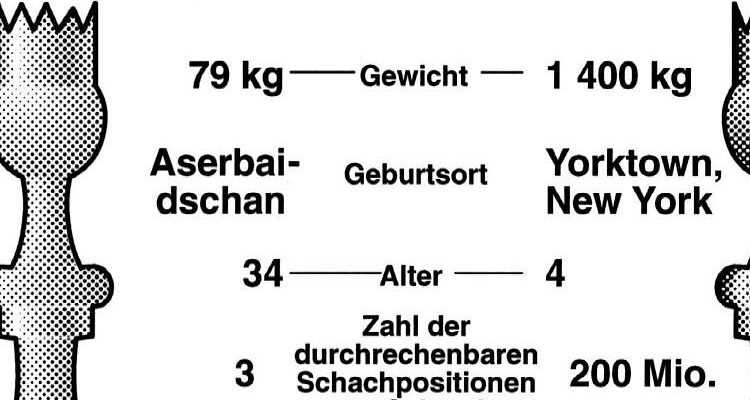Deep Blue defeats Grandmaster
When Kasparov gambled away the honor of mankind
05/11/2022, 06:58 am
The duel between man and machine has fascinated the world for a long, long time. 25 years ago it was about nothing less than the “honor of mankind”. World chess champion Garry Kasparov takes on the supercomputer Deep Blue – and loses. A turning point.
Mankind feared, the technology world hoped – and the chess world champion failed. In the eagerly awaited duel between man and machine, Garry Kasparov faced off against the supercomputer Deep Blue. But the Russian genius didn’t just lose the crucial sixth game. His historic defeat 25 years ago marked the beginning of a new era.
On May 11, 1997, the whole world looked to New York, where Kasparov said he wanted to defend the “honor of mankind.” The then 34-year-old had achieved this a year earlier when he confidently won the first duel against Deep Blue. But the revenge took a different course.
Kasparov, who was world champion from 1985 to 2000 and has been an opposition activist in his home country since the end of his career 17 years ago, went into the sixth encounter with self-confidence and perhaps a little arrogance. Knowing full well that he had spotted errors in the computer game in previous encounters – at least that was his assumption.
Kasparov dares everything
But the developers around Hsu Feng-hsiung had upgraded Deep Blue compared to the first meeting. The supercomputer, which looked like a refrigerator with two black towers, each two meters high, could calculate up to 200 million positions within a second. Kasparov nevertheless suspected a gap in the opening program.
And so the best chess player of his generation dared an opening that he had previously only practiced in encounters against his compatriot and great rival Anatoly Karpov. A mistake, as it turned out. Deep Blue was able to adapt to this highly risky tactic, which Black had already ruled out as too dangerous in 1997.
Kasparov despaired. After move 18, many of his pieces were still in their starting position, but his king was so exposed that he was forced to surrender. It was one of the fastest defeats in classic tournament conditions with time control of his career. Kasparov lost the duel 2.5:3.5. Scorn and ridicule rained down on him.
Milestone for the AI
The first defeat of a human against a computer heralded a turning point. “A historic moment,” Kasparov later admitted, “although it was a brutal, non-humanoid machine that apparently had to triumph in chess”. He described his performance as “embarrassing”.
It was a milestone for the developers of artificial intelligence (AI) systems. Computers can no longer be conquered by even the best grandmasters. However, Deep Blue is no longer one of them. The development of the computer specially made for the competition by the American IT company IBM was discontinued after the historic victory.
Because: A planned third duel, for which Deep Blue should be upgraded again, did not materialize. Kasparov refused. Understandable.
